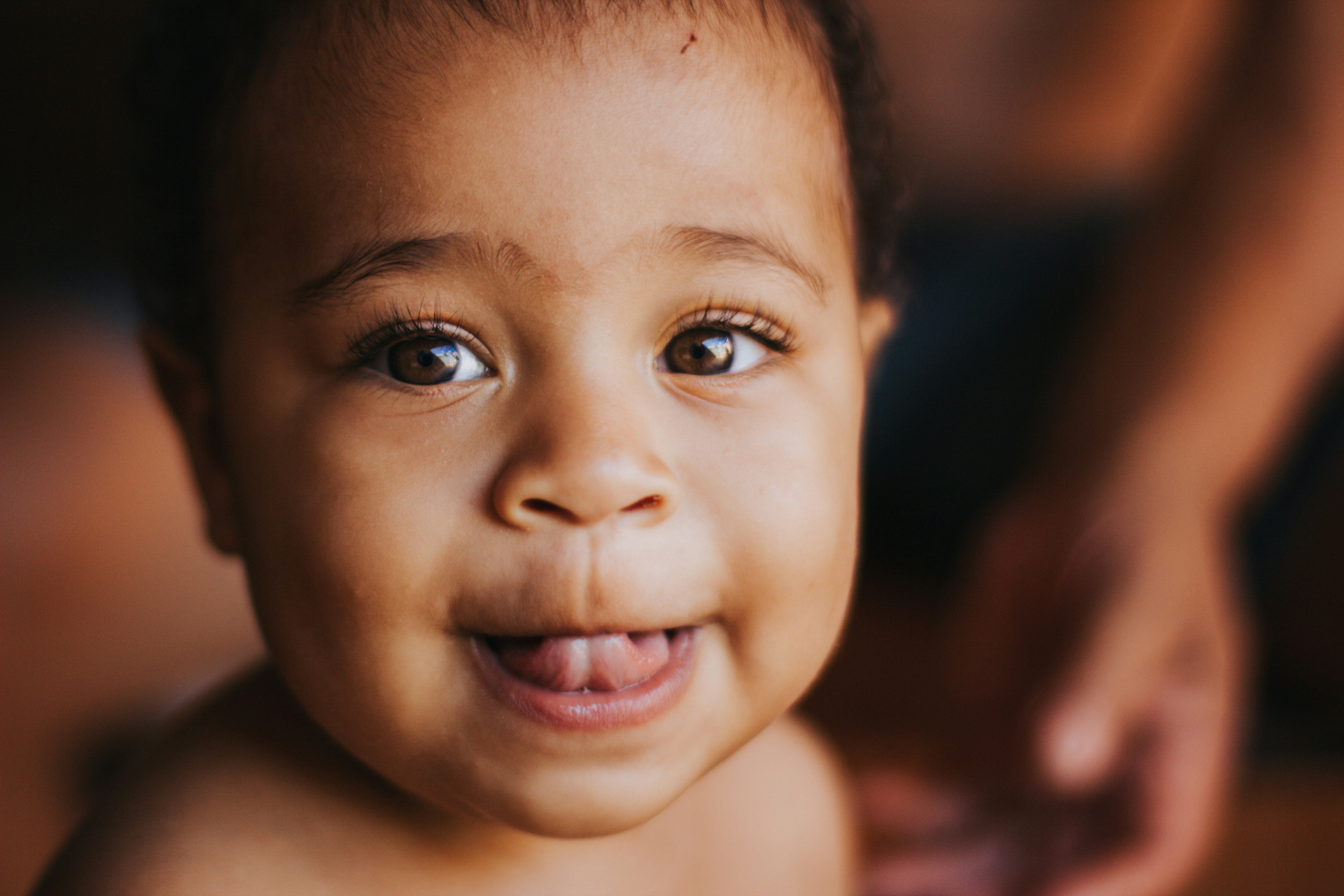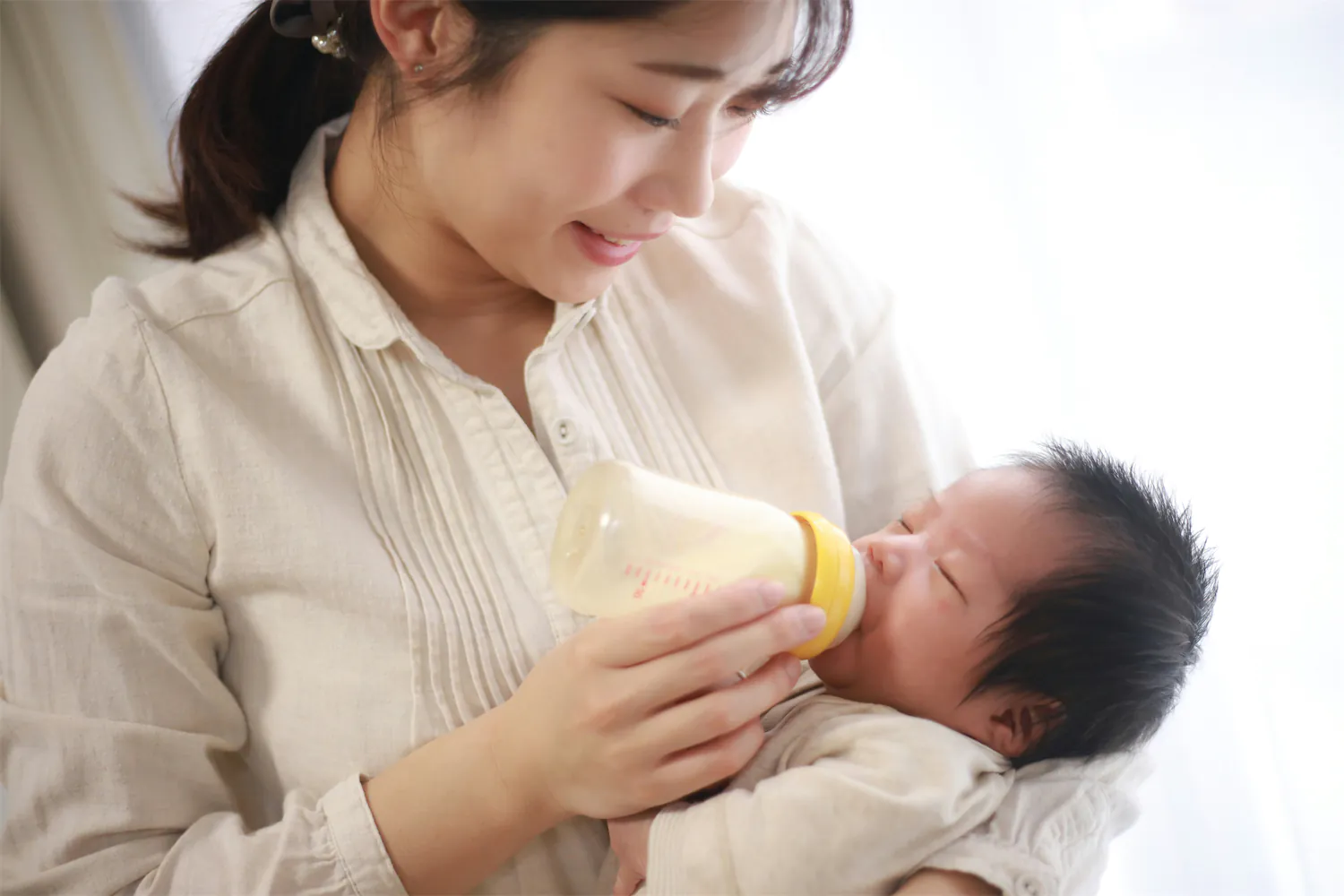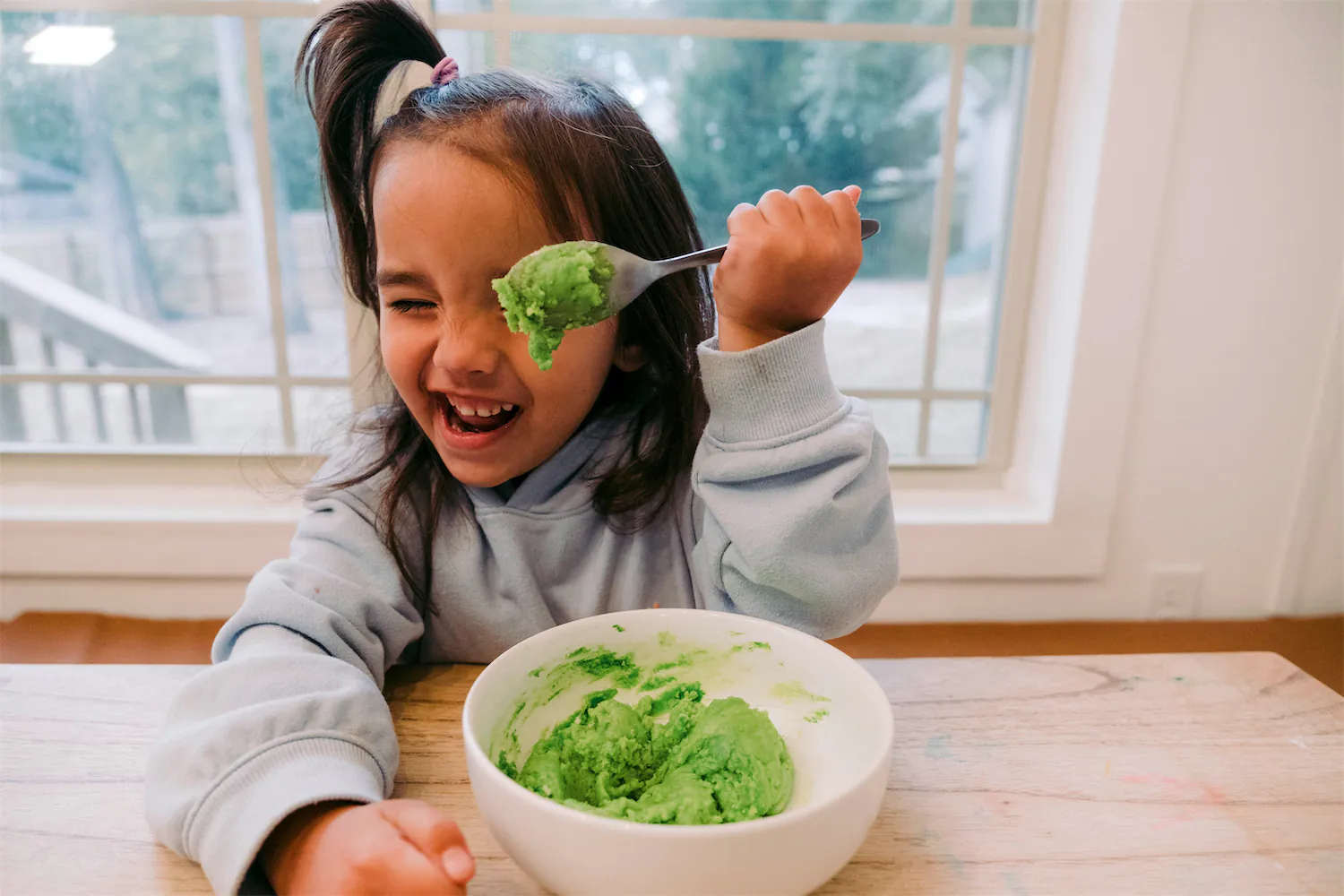Allergies in infants: Understanding food allergies and seasonal allergies
Allergies in infants: Understanding food allergies and seasonal allergies
Just like adults can have allergic reactions, newborns and babies can have allergies too. Allergies in children happen when a child's immune system notices a strange or harmful substance, and then overreacts to that substance. Anything that causes an allergic reaction is known as an allergen. This explainer will detail the many types of allergies babies and young children can have — including milk allergies, other food allergies, and pollen allergies — as well as how a pediatrician can help your child with allergies.
Just like adults can have allergic reactions, newborns and babies can have allergies too. Allergies in children happen when a child's immune system notices a strange or harmful substance, and then overreacts to that substance. Anything that causes an allergic reaction is known as an allergen. This explainer will detail the many types of allergies babies and young children can have — including milk allergies, other food allergies, and pollen allergies — as well as how a pediatrician can help your child with allergies.

Megan N. Freeland, PharmD
Content Writer

Dr. Marcy Borieux
Pediatrician



A quick note before we dive in: if your child ever has severe allergy symptoms like wheezing or difficulty breathing, hives (rash) across their body, fast heartbeat, irritability, or swelling of their lips, mouth, throat, or tongue, these can be signs of a medical emergency called anaphylaxis. Call 911 right away.
Common Types of Allergies in Infants
Food allergies
Food allergies in children, including babies, are common. According to the Centers for Disease Control and Prevention (CDC), about 1 in every 13 children has a food allergy, with the nine most common allergenic foods being:
Cow’s milk
Wheat
Egg
Soy
Sesame
Tree nuts
Peanuts
Fish
Shellfish
Dairy allergies in infants
Dairy allergies — or cows’ milk protein allergies — are particularly common in babies. Of the 3% of babies who develop at least one food allergy before age one, more than half are allergic to a protein found in cow’s milk. This can cause babies to have an allergic reaction to milk and dairy products. Babies may also appear to be allergic to breastmilk if the milk supply comes from someone who eats or drinks dairy products.
Signs of a milk protein allergy in babies may include:
Blood or mucus in stools
Itchy rash or hives on the baby’s body or near their mouth
Eczema
Swelling on the face, such as the lips
Runny or stuffy nose
Throwing up
Diarrhea
Poor growth
Lethargy (extreme sleepiness, tiredness, or low activity)
A quick note on diarrhea: if your baby’s poop is very loose, has mucus, or has blood, these are clues that can signal a possible milk allergy.
Dairy intolerance is different from a true dairy allergy, so what does dairy intolerance look like in newborns? Well, if a newborn or infant has a dairy intolerance, it simply means their body has a hard time digesting milk. Signs of a dairy intolerance might include:
Loose or runny poop
Blood in poop
Gassiness
Low appetite
Irritability
These signs and symptoms could happen shortly after they’re exposed to milk products, but it could take up to days later for these symptoms to show up.
You might have noticed that the symptoms of dairy intolerance overlap with the symptoms of a dairy allergy. Your child’s doctor or one of our Summer Health pediatricians can help you figure out whether your baby has a cows’ milk protein allergy, a dairy intolerance, or some other type of food allergy. Many children, though not all, will outgrow a milk allergy if they have one.
Formula allergies in infants
Formula allergies are actually closely related to milk allergies. That’s because formula contains milk protein.
Just like the earlier conversation, there’s a difference between a formula allergy and a formula intolerance. The same stomach-related symptoms that signal a milk protein intolerance can be formula intolerance symptoms. And your child’s doctor can help you find out if your child has a formula or milk protein intolerance.
Frequently asked questions about food allergies in infants
Can food allergies cause rashes in newborns?
Rashes can certainly be signs of infant food allergy, though they aren't always. Food allergy rashes are oftentimes itchy, and may show up as hives. Hives are raised bumps that may look reddish on lighter skin. On darker skin, they may match the baby’s skin color, but may be slightly lighter or darker.
If your baby has hives along with any other symptoms of anaphylaxis — like wheezing, trouble breathing, fast heartbeat, or swelling on the baby’s face, mouth, or body — treat it like a medical emergency and get medical help right away.
Is there a connection between eczema and food allergies in infants?
Eczema is a condition that affects up to 10% of infants and children and causes dry, itchy, sensitive skin. Eczema is also known as atopic dermatitis and has a close relationship to food allergies. About 3 in every 10 infants with severe eczema have a food allergy too.
According to the National Eczema Association, eczema can worsen allergies in infants because it makes their immune systems weaker. That soft baby skin we love so much actually serves a bigger purpose than just feeling and smelling nice. Skin is a protective barrier, but when eczema and other conditions break down the skin, it can weaken your baby's immune system causing it to overreact more to allergens.
Can I help my baby avoid food allergies?
Introducing common food allergens early on — around the time your little one is starting solids — is a proven way to lower their risk of developing a food allergy.
Common food allergens are best introduced early in the day since allergic reactions can happen right after exposure to the food, or even hours later. Trying the new food earlier in the day gives you plenty of time to keep an eye on your baby and monitor for signs and symptoms of food allergy.
Seasonal allergies (or hay fever)
Seasonal allergies in infants — like a pollen allergy, for example — can happen, but in reality are quite rare. Since newborns typically aren’t spending a lot of time outdoors near pollen, ragweed, and other allergens, their immune systems don’t get the chance to notice and overreact to those allergens.
It’s usually not until ages 3 to 6 that children start to develop seasonal allergies — also called hay fever or allergic rhinitis — caused by outdoor allergens like pollen. Seasonal allergy symptoms often include itchy eyes and runny noses.
Allergies vs. cold in babies
If you think your baby might have seasonal allergies, it’s not impossible. But it's more likely that they have a respiratory infection like a cold. (For older children, seasonal allergies are more common, so it may be a bit trickier to know whether they’re allergic to something like pollen or whether they have a cold.)
Some symptoms — like a runny nose, stuffy nose, or sneezing — are common allergy symptoms and cold symptoms. But a fever is a clear sign of an infection. So if your little one has a fever, whatever is ailing them is almost certainly not a seasonal allergy.
Environmental allergies, drug allergies, and insect allergies
Food allergies and seasonal allergies aren’t the only types out there. Babies can also have year round allergies to things in the environment like pets, dust mites, and mold. They can also be allergic to some medications and some types of insects.
When medication or drug allergies — sometimes called drug hypersensitivities — happen in infants and older children, they are usually caused by:
Antibiotics like penicillin
Anti-seizure medicines like carbamazepine
Acetaminophen (brand name: Tylenol)
NSAIDs like ibuprofen (brand name: Motrin, Advil)
But don't worry: this doesn’t mean these medications cause drug allergies in every infant or child. Skin reactions like hives and stomach-related symptoms like nausea, vomiting, and diarrhea are the most common drug allergy symptoms in children.
Rarely, vaccines can also trigger allergies in infants and children. Usually, the allergy isn’t actually caused by the part of the vaccine that protects your child against an infection. If a child has a vaccine allergy, it’s more often because of the other ingredients that may be present to keep the vaccine stable — for example, preservatives, latex, or egg protein. If you suspect a vaccine allergy, be sure to follow-up and discuss with your pediatrician as soon as possible.
When it comes to insect allergies, stings are responsible for 7% of all anaphylaxis cases in children. Bee stings, wasp stings, and ant bites are the most likely insect allergies to cause anaphylaxis.
Diagnosing and Treating Allergies in Infants
How can a pediatrician or allergist help my child with allergies?
Pediatricians and allergists can help you diagnose and get to the root of your child’s allergies, sometimes with the help of allergy testing. If your baby has a food allergy, milk allergy, drug allergy, or any other type, an important goal is to avoid or limit exposure to the allergens. In cases where triggers can’t be avoided and your baby has an allergic reaction, a pediatrician or allergist can help you figure out how to treat it.
Addressing severe allergic reactions
Some allergic reactions are more serious than others. Anaphylaxis is one of those and is considered a medical emergency. Remember: if your child ever has severe allergy symptoms like wheezing or difficulty breathing, hives (rash) across their body, fast heartbeat, irritability, lethargy, or swelling of their lips, mouth, throat, or tongue, these can be signs of a medical emergency called anaphylaxis. Call 911 right away.
A child who is having an anaphylactic reaction should be treated with epinephrine to manage the reaction. Parents of children with certain types of allergies may be prescribed epinephrine in the form of an Epi-Pen in case of anaphylaxis. If you ever have to give your child a shot with the Epi-Pen, you should still be sure to call 911 right after because they may need additional or follow-up treatment at an emergency department.
A quick note before we dive in: if your child ever has severe allergy symptoms like wheezing or difficulty breathing, hives (rash) across their body, fast heartbeat, irritability, or swelling of their lips, mouth, throat, or tongue, these can be signs of a medical emergency called anaphylaxis. Call 911 right away.
Common Types of Allergies in Infants
Food allergies
Food allergies in children, including babies, are common. According to the Centers for Disease Control and Prevention (CDC), about 1 in every 13 children has a food allergy, with the nine most common allergenic foods being:
Cow’s milk
Wheat
Egg
Soy
Sesame
Tree nuts
Peanuts
Fish
Shellfish
Dairy allergies in infants
Dairy allergies — or cows’ milk protein allergies — are particularly common in babies. Of the 3% of babies who develop at least one food allergy before age one, more than half are allergic to a protein found in cow’s milk. This can cause babies to have an allergic reaction to milk and dairy products. Babies may also appear to be allergic to breastmilk if the milk supply comes from someone who eats or drinks dairy products.
Signs of a milk protein allergy in babies may include:
Blood or mucus in stools
Itchy rash or hives on the baby’s body or near their mouth
Eczema
Swelling on the face, such as the lips
Runny or stuffy nose
Throwing up
Diarrhea
Poor growth
Lethargy (extreme sleepiness, tiredness, or low activity)
A quick note on diarrhea: if your baby’s poop is very loose, has mucus, or has blood, these are clues that can signal a possible milk allergy.
Dairy intolerance is different from a true dairy allergy, so what does dairy intolerance look like in newborns? Well, if a newborn or infant has a dairy intolerance, it simply means their body has a hard time digesting milk. Signs of a dairy intolerance might include:
Loose or runny poop
Blood in poop
Gassiness
Low appetite
Irritability
These signs and symptoms could happen shortly after they’re exposed to milk products, but it could take up to days later for these symptoms to show up.
You might have noticed that the symptoms of dairy intolerance overlap with the symptoms of a dairy allergy. Your child’s doctor or one of our Summer Health pediatricians can help you figure out whether your baby has a cows’ milk protein allergy, a dairy intolerance, or some other type of food allergy. Many children, though not all, will outgrow a milk allergy if they have one.
Formula allergies in infants
Formula allergies are actually closely related to milk allergies. That’s because formula contains milk protein.
Just like the earlier conversation, there’s a difference between a formula allergy and a formula intolerance. The same stomach-related symptoms that signal a milk protein intolerance can be formula intolerance symptoms. And your child’s doctor can help you find out if your child has a formula or milk protein intolerance.
Frequently asked questions about food allergies in infants
Can food allergies cause rashes in newborns?
Rashes can certainly be signs of infant food allergy, though they aren't always. Food allergy rashes are oftentimes itchy, and may show up as hives. Hives are raised bumps that may look reddish on lighter skin. On darker skin, they may match the baby’s skin color, but may be slightly lighter or darker.
If your baby has hives along with any other symptoms of anaphylaxis — like wheezing, trouble breathing, fast heartbeat, or swelling on the baby’s face, mouth, or body — treat it like a medical emergency and get medical help right away.
Is there a connection between eczema and food allergies in infants?
Eczema is a condition that affects up to 10% of infants and children and causes dry, itchy, sensitive skin. Eczema is also known as atopic dermatitis and has a close relationship to food allergies. About 3 in every 10 infants with severe eczema have a food allergy too.
According to the National Eczema Association, eczema can worsen allergies in infants because it makes their immune systems weaker. That soft baby skin we love so much actually serves a bigger purpose than just feeling and smelling nice. Skin is a protective barrier, but when eczema and other conditions break down the skin, it can weaken your baby's immune system causing it to overreact more to allergens.
Can I help my baby avoid food allergies?
Introducing common food allergens early on — around the time your little one is starting solids — is a proven way to lower their risk of developing a food allergy.
Common food allergens are best introduced early in the day since allergic reactions can happen right after exposure to the food, or even hours later. Trying the new food earlier in the day gives you plenty of time to keep an eye on your baby and monitor for signs and symptoms of food allergy.
Seasonal allergies (or hay fever)
Seasonal allergies in infants — like a pollen allergy, for example — can happen, but in reality are quite rare. Since newborns typically aren’t spending a lot of time outdoors near pollen, ragweed, and other allergens, their immune systems don’t get the chance to notice and overreact to those allergens.
It’s usually not until ages 3 to 6 that children start to develop seasonal allergies — also called hay fever or allergic rhinitis — caused by outdoor allergens like pollen. Seasonal allergy symptoms often include itchy eyes and runny noses.
Allergies vs. cold in babies
If you think your baby might have seasonal allergies, it’s not impossible. But it's more likely that they have a respiratory infection like a cold. (For older children, seasonal allergies are more common, so it may be a bit trickier to know whether they’re allergic to something like pollen or whether they have a cold.)
Some symptoms — like a runny nose, stuffy nose, or sneezing — are common allergy symptoms and cold symptoms. But a fever is a clear sign of an infection. So if your little one has a fever, whatever is ailing them is almost certainly not a seasonal allergy.
Environmental allergies, drug allergies, and insect allergies
Food allergies and seasonal allergies aren’t the only types out there. Babies can also have year round allergies to things in the environment like pets, dust mites, and mold. They can also be allergic to some medications and some types of insects.
When medication or drug allergies — sometimes called drug hypersensitivities — happen in infants and older children, they are usually caused by:
Antibiotics like penicillin
Anti-seizure medicines like carbamazepine
Acetaminophen (brand name: Tylenol)
NSAIDs like ibuprofen (brand name: Motrin, Advil)
But don't worry: this doesn’t mean these medications cause drug allergies in every infant or child. Skin reactions like hives and stomach-related symptoms like nausea, vomiting, and diarrhea are the most common drug allergy symptoms in children.
Rarely, vaccines can also trigger allergies in infants and children. Usually, the allergy isn’t actually caused by the part of the vaccine that protects your child against an infection. If a child has a vaccine allergy, it’s more often because of the other ingredients that may be present to keep the vaccine stable — for example, preservatives, latex, or egg protein. If you suspect a vaccine allergy, be sure to follow-up and discuss with your pediatrician as soon as possible.
When it comes to insect allergies, stings are responsible for 7% of all anaphylaxis cases in children. Bee stings, wasp stings, and ant bites are the most likely insect allergies to cause anaphylaxis.
Diagnosing and Treating Allergies in Infants
How can a pediatrician or allergist help my child with allergies?
Pediatricians and allergists can help you diagnose and get to the root of your child’s allergies, sometimes with the help of allergy testing. If your baby has a food allergy, milk allergy, drug allergy, or any other type, an important goal is to avoid or limit exposure to the allergens. In cases where triggers can’t be avoided and your baby has an allergic reaction, a pediatrician or allergist can help you figure out how to treat it.
Addressing severe allergic reactions
Some allergic reactions are more serious than others. Anaphylaxis is one of those and is considered a medical emergency. Remember: if your child ever has severe allergy symptoms like wheezing or difficulty breathing, hives (rash) across their body, fast heartbeat, irritability, lethargy, or swelling of their lips, mouth, throat, or tongue, these can be signs of a medical emergency called anaphylaxis. Call 911 right away.
A child who is having an anaphylactic reaction should be treated with epinephrine to manage the reaction. Parents of children with certain types of allergies may be prescribed epinephrine in the form of an Epi-Pen in case of anaphylaxis. If you ever have to give your child a shot with the Epi-Pen, you should still be sure to call 911 right after because they may need additional or follow-up treatment at an emergency department.
References
Centers for Disease Control and Prevention. Food Allergies. https://www.cdc.gov/healthyschools/foodallergies/index.htm
Food Allergy Research & Education. Infancy. https://www.foodallergy.org/resources/infancy
National Eczema Association. Causes, symptoms, treatment and more. https://nationaleczema.org/eczema/children/
Food Allergy Research & Education. Early Introduction and Food Allergy Prevention. https://www.foodallergy.org/research-innovation/accelerating-innovation/early-introduction-and-food-allergy-prevention
Clinical and experimental pediatrics. Drug Allergy in Children: What Should We Know? https://doi.org/10.3345/kjp.2019.00675
Pediatric allergy and immunology. A longitudinal study of hymenoptera stings in preschool children. https://doi.org/10.1111/pai.12987
Journal of paediatrics and child health. Insect allergy in children. https://doi.org/10.1111/jpc.12178
Centers for Disease Control and Prevention. Food Allergies. https://www.cdc.gov/healthyschools/foodallergies/index.htm
Food Allergy Research & Education. Infancy. https://www.foodallergy.org/resources/infancy
National Eczema Association. Causes, symptoms, treatment and more. https://nationaleczema.org/eczema/children/
Food Allergy Research & Education. Early Introduction and Food Allergy Prevention. https://www.foodallergy.org/research-innovation/accelerating-innovation/early-introduction-and-food-allergy-prevention
Clinical and experimental pediatrics. Drug Allergy in Children: What Should We Know? https://doi.org/10.3345/kjp.2019.00675
Pediatric allergy and immunology. A longitudinal study of hymenoptera stings in preschool children. https://doi.org/10.1111/pai.12987
Journal of paediatrics and child health. Insect allergy in children. https://doi.org/10.1111/jpc.12178
Centers for Disease Control and Prevention. Food Allergies. https://www.cdc.gov/healthyschools/foodallergies/index.htm
Food Allergy Research & Education. Infancy. https://www.foodallergy.org/resources/infancy
National Eczema Association. Causes, symptoms, treatment and more. https://nationaleczema.org/eczema/children/
Food Allergy Research & Education. Early Introduction and Food Allergy Prevention. https://www.foodallergy.org/research-innovation/accelerating-innovation/early-introduction-and-food-allergy-prevention
Clinical and experimental pediatrics. Drug Allergy in Children: What Should We Know? https://doi.org/10.3345/kjp.2019.00675
Pediatric allergy and immunology. A longitudinal study of hymenoptera stings in preschool children. https://doi.org/10.1111/pai.12987
Journal of paediatrics and child health. Insect allergy in children. https://doi.org/10.1111/jpc.12178
Summer Health offers fast and reliable pediatric urgent care through online doctors, all via text. Whether you’re worried about your baby's fever, rashes, or other children's health concerns, we provide expert advice and support anytime, right from your phone.

Never miss a post!
Sign up for our newsletter to receive articles and guides directly to your inbox!

















